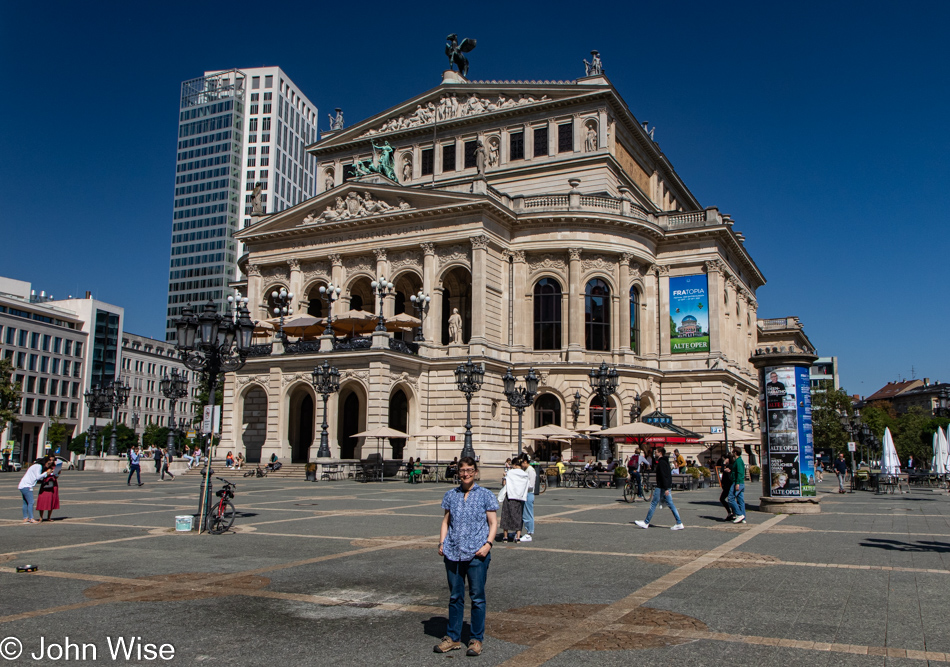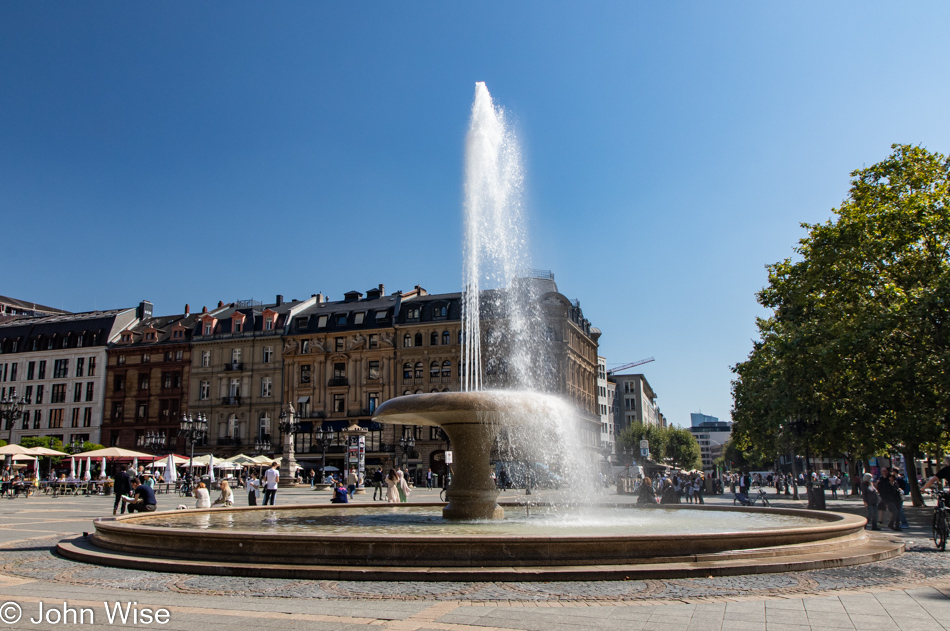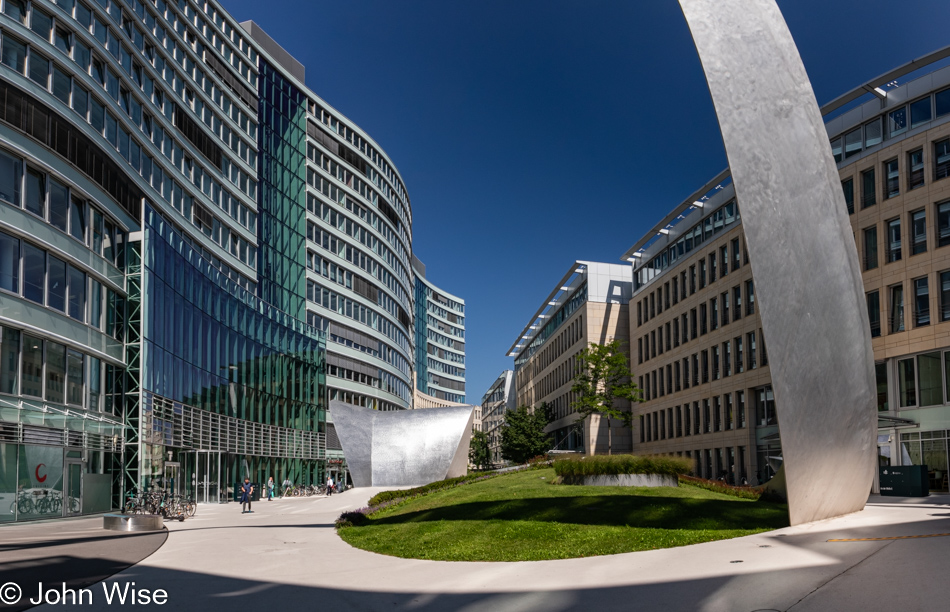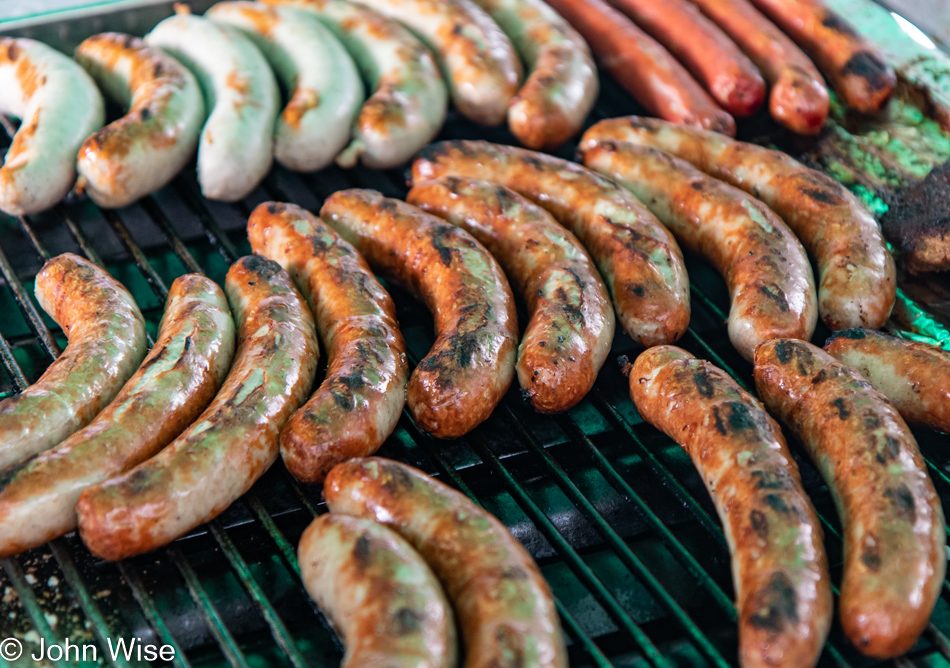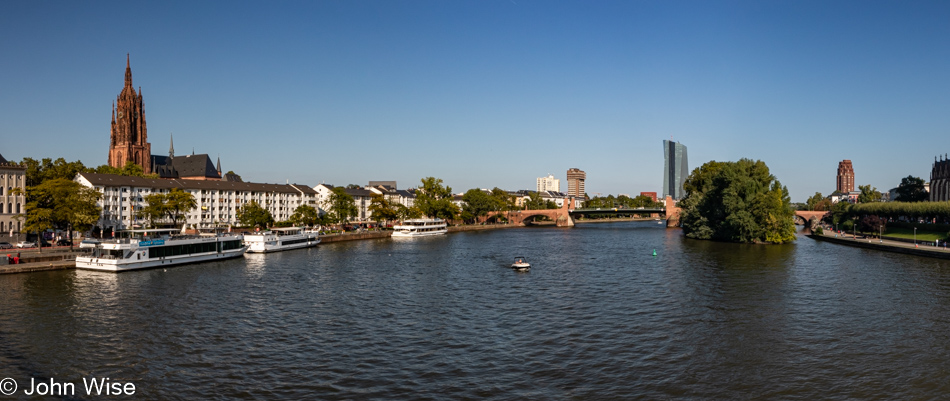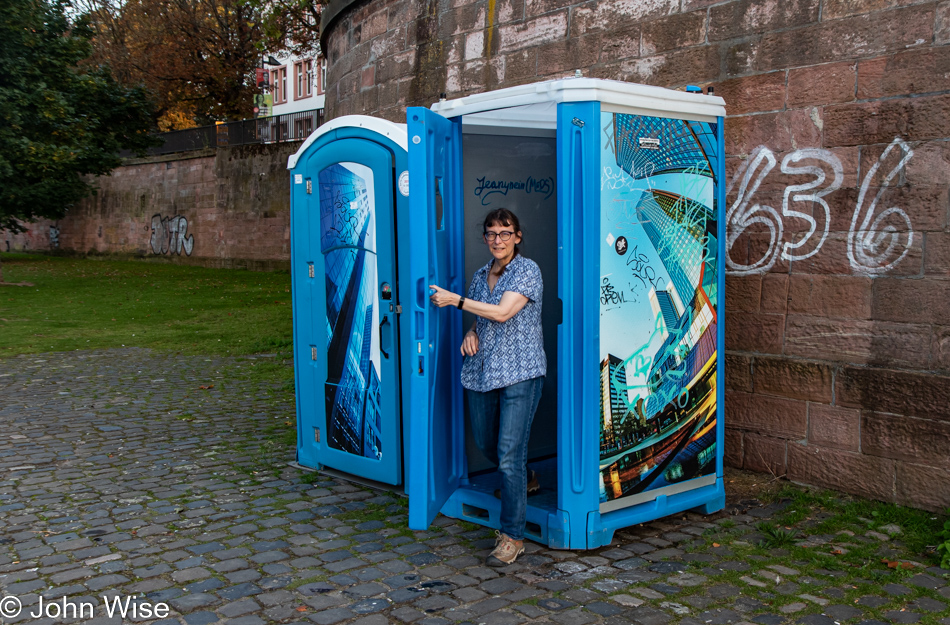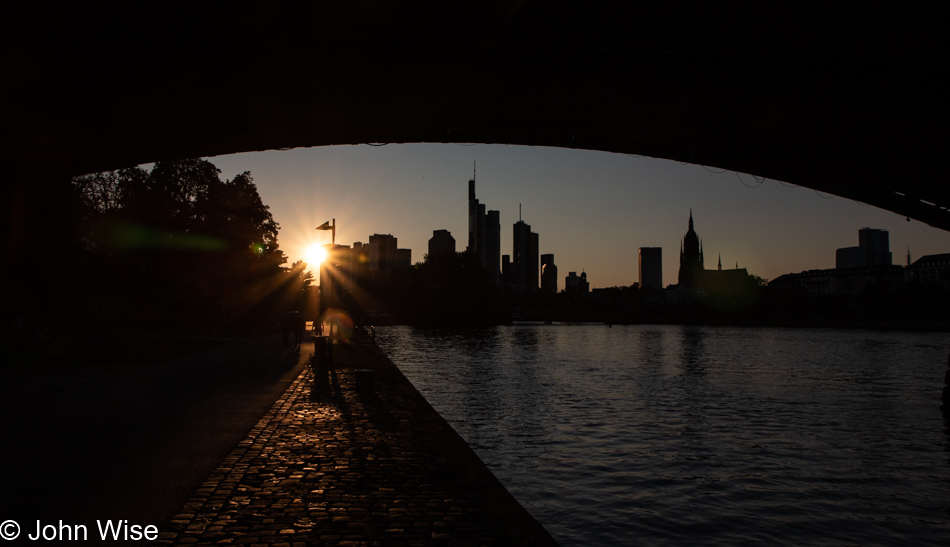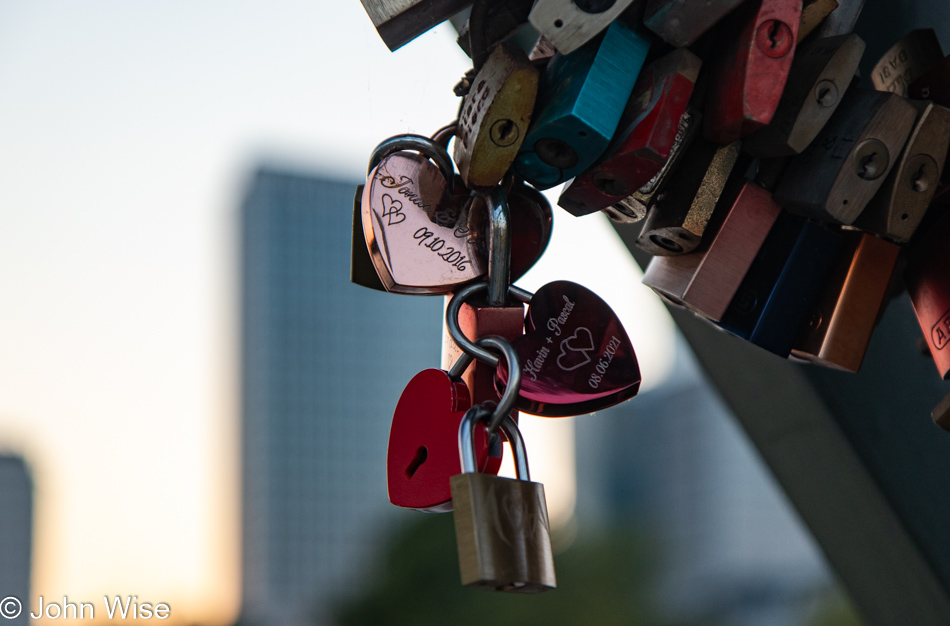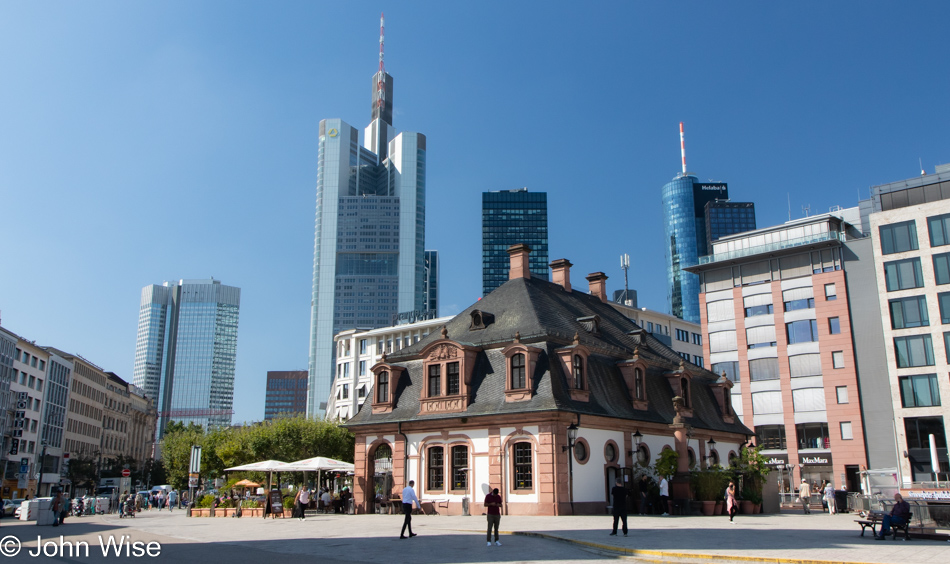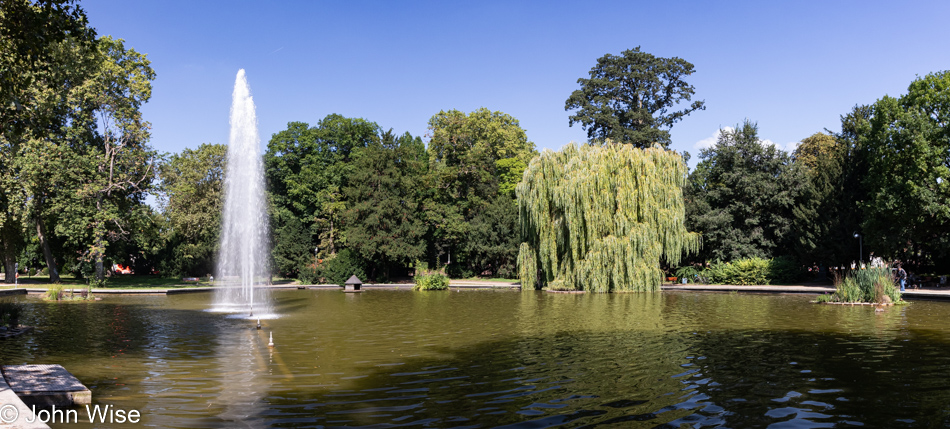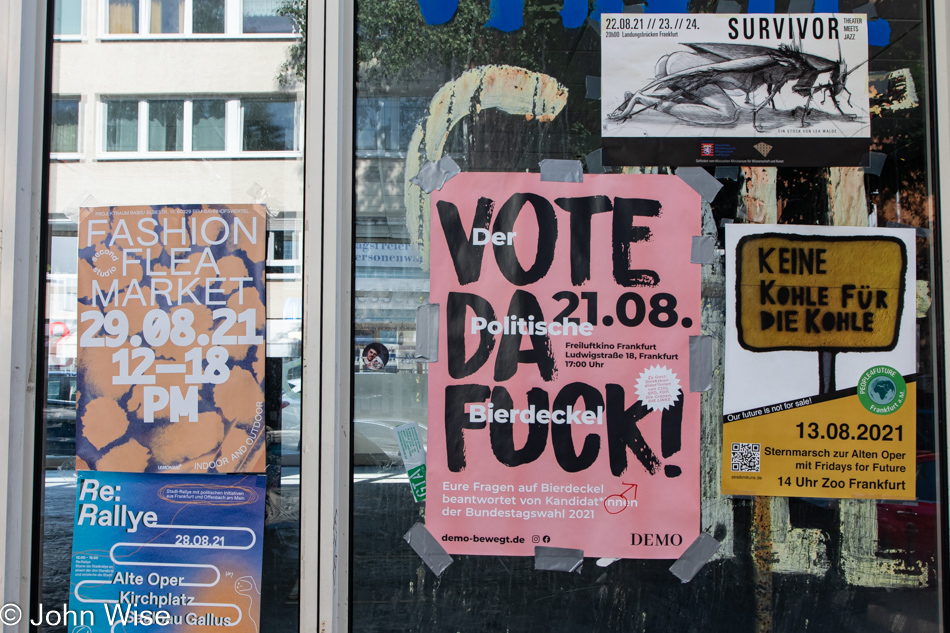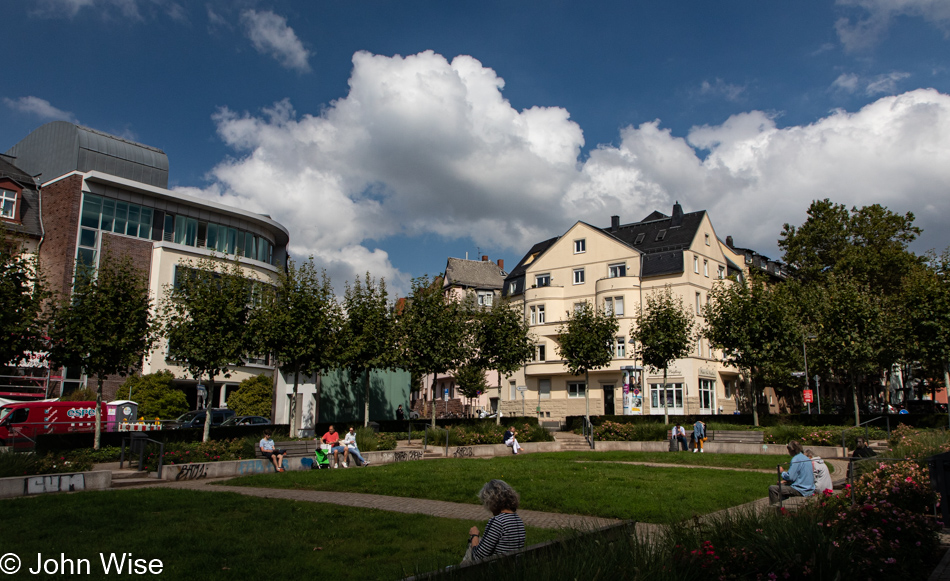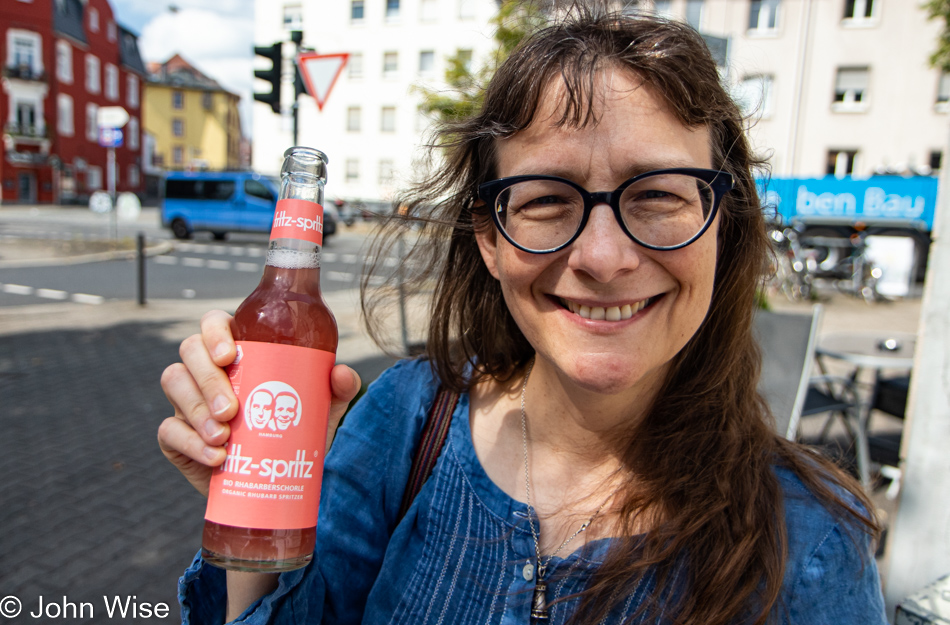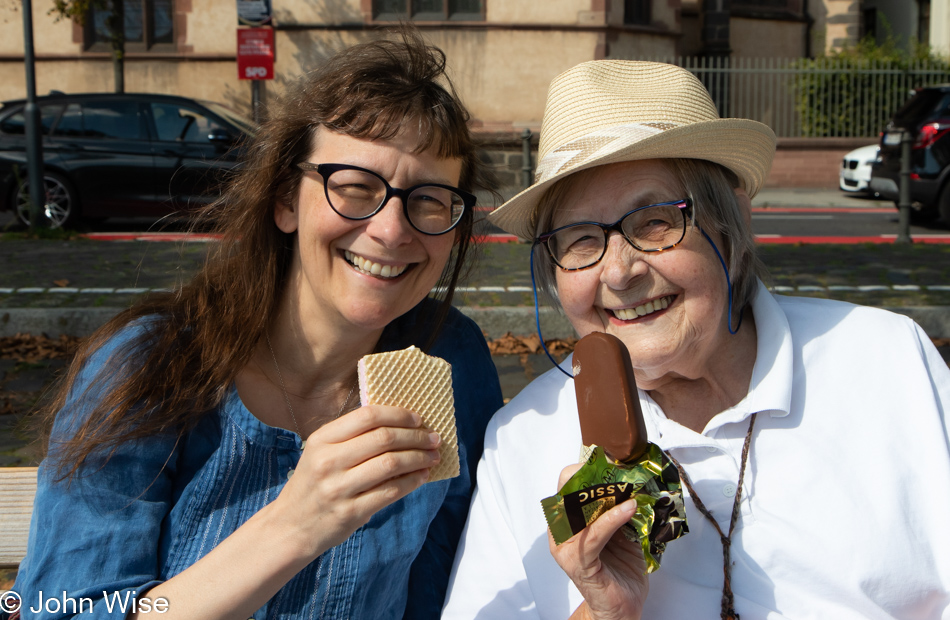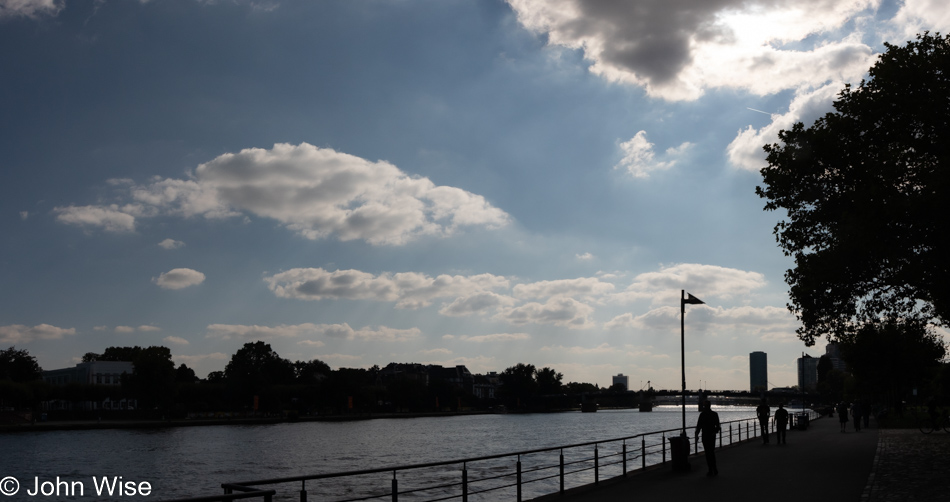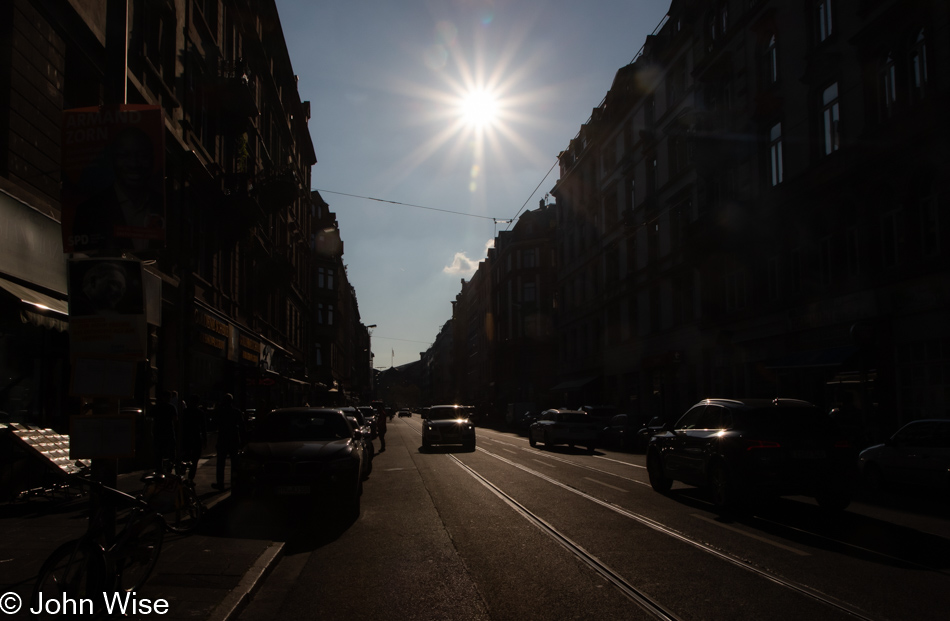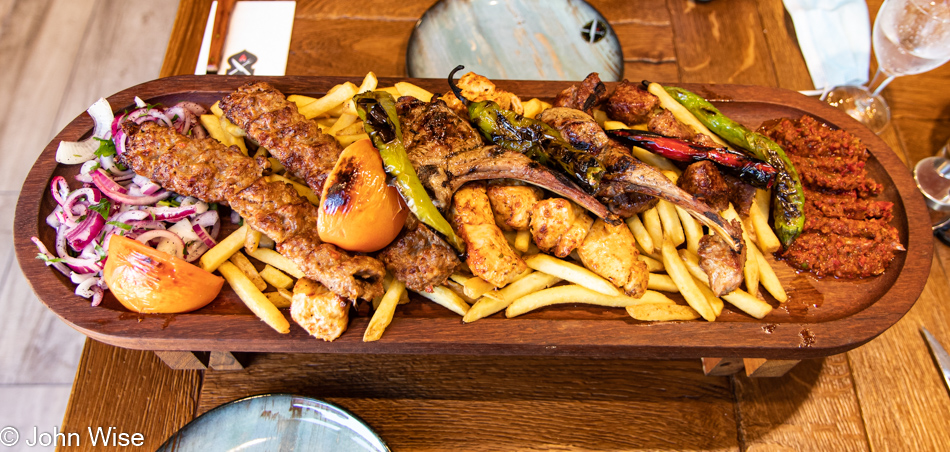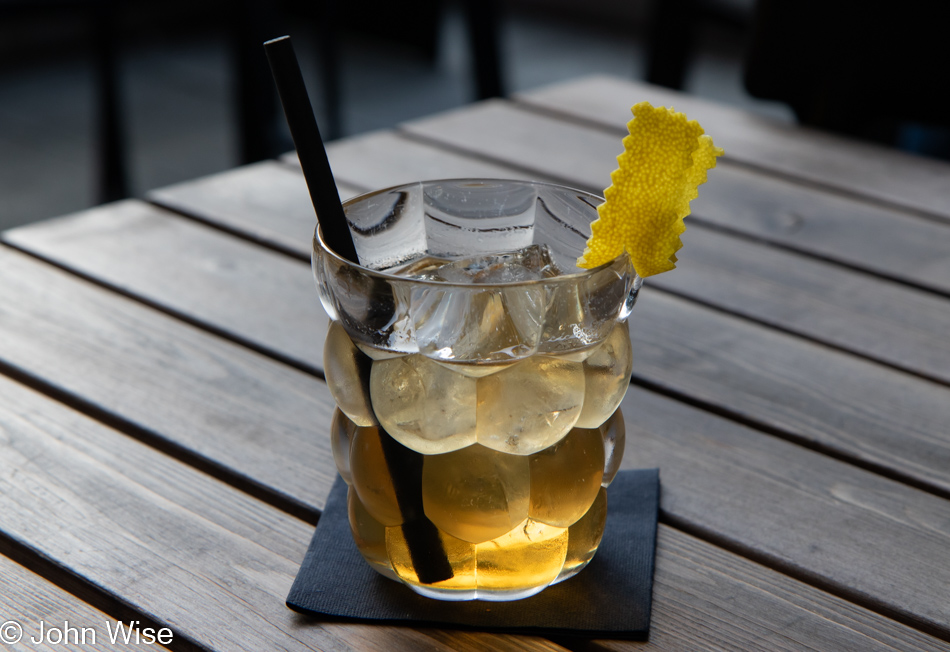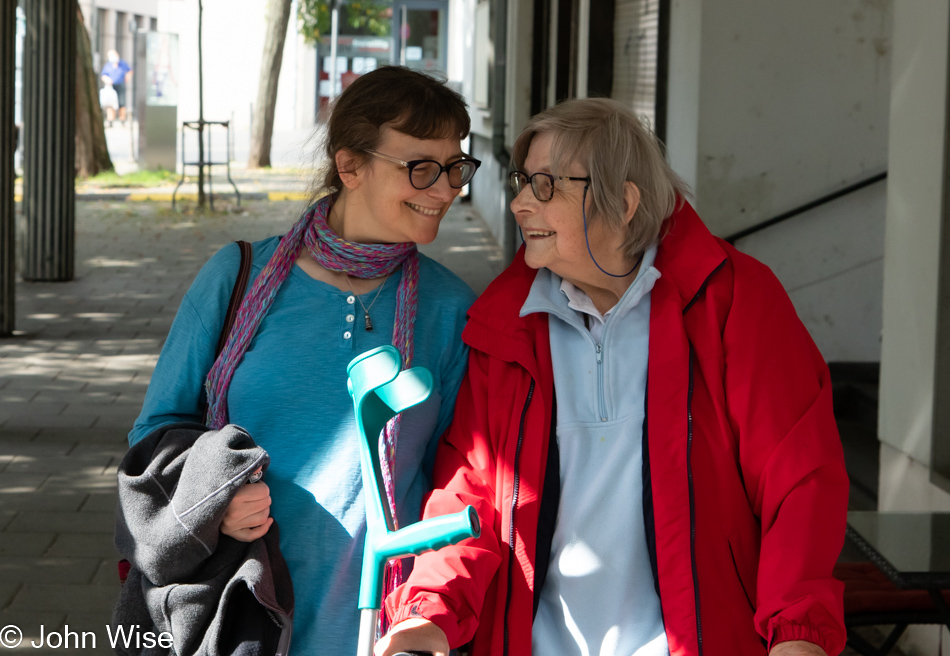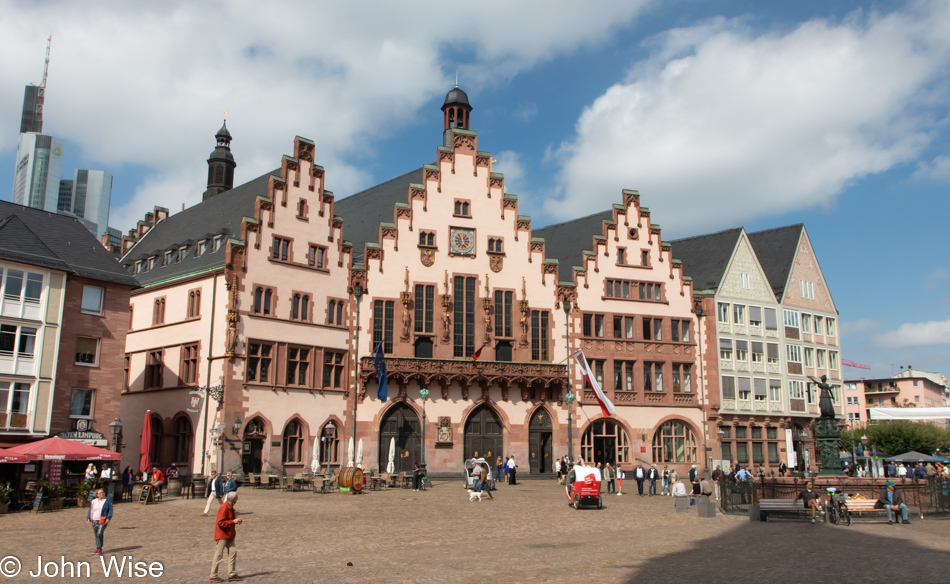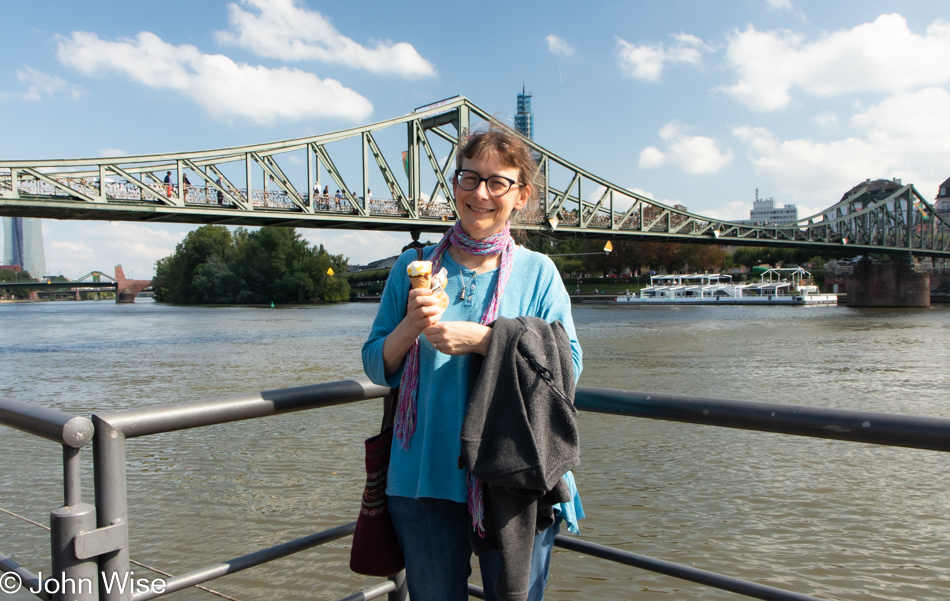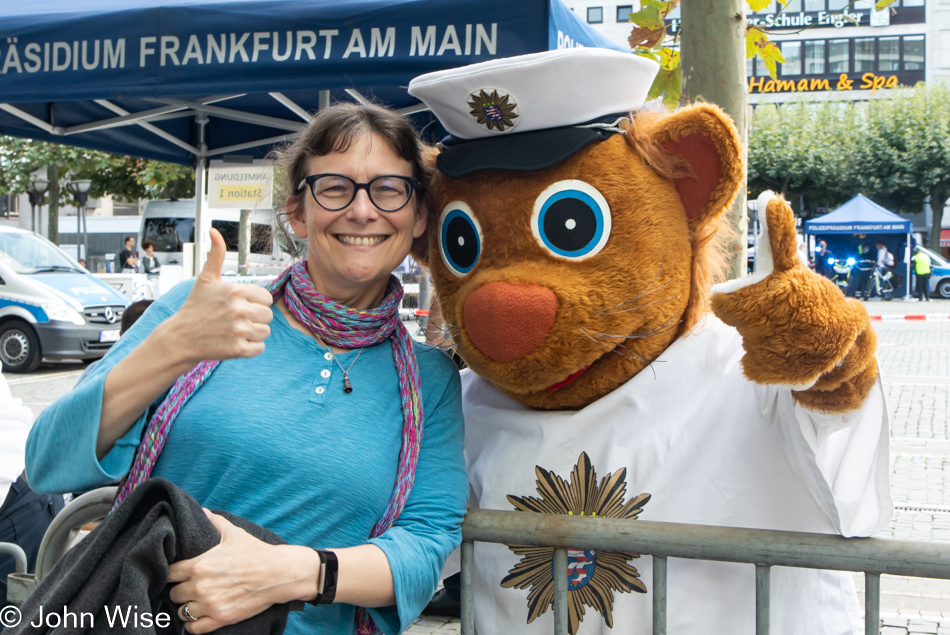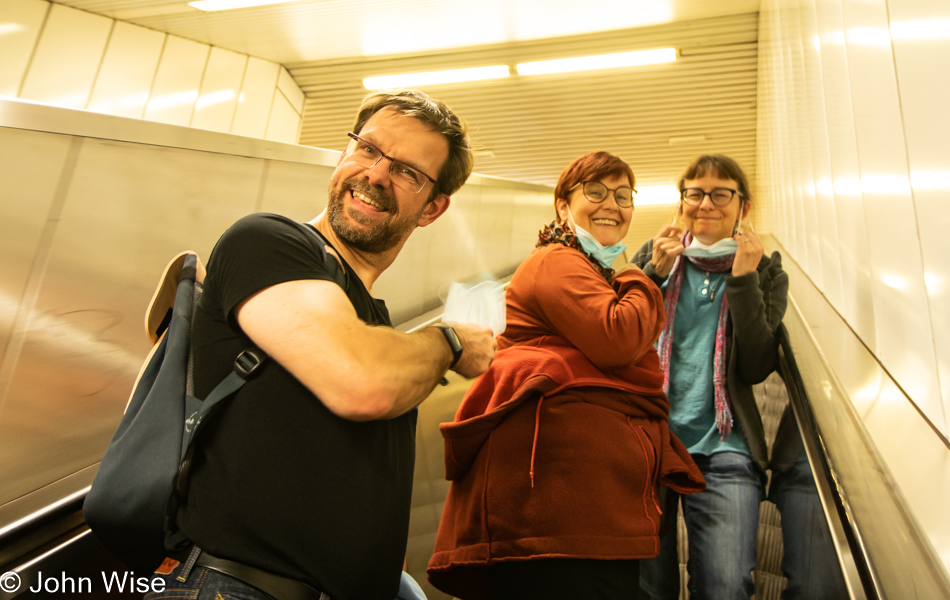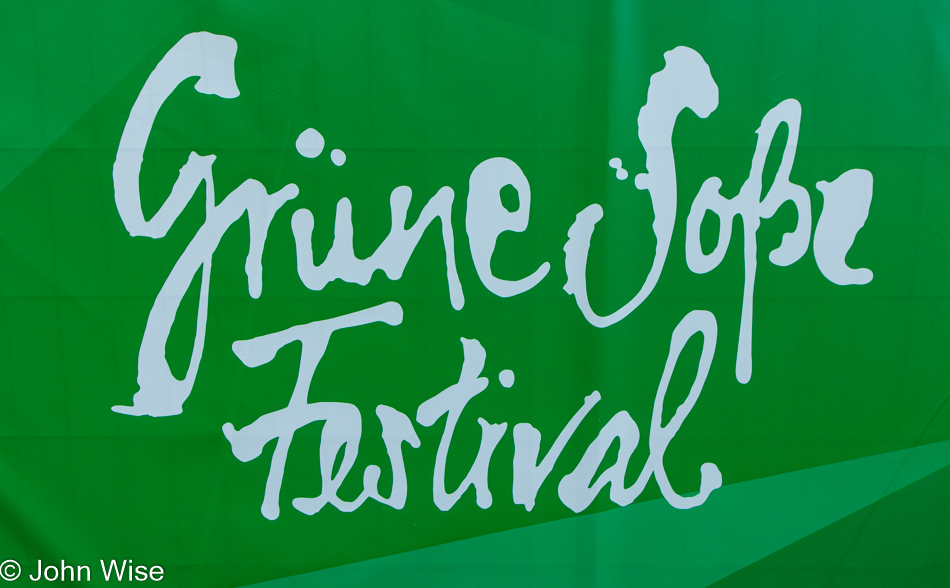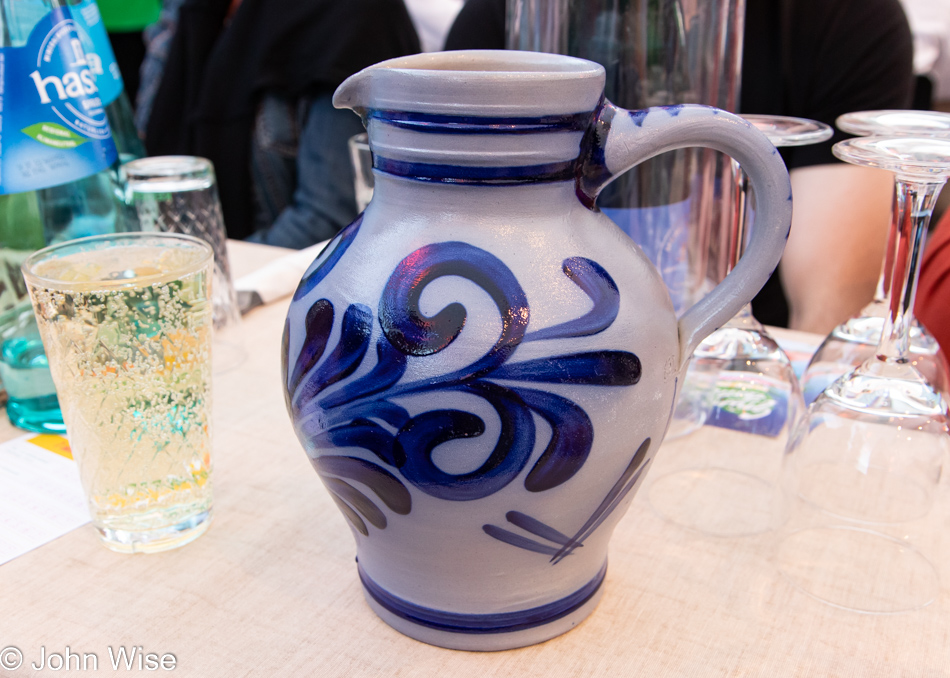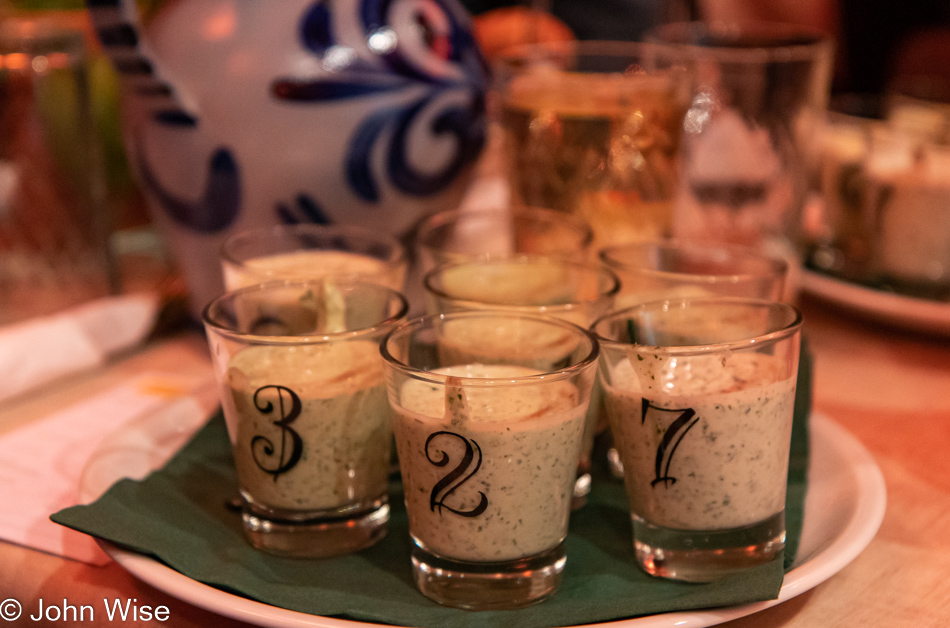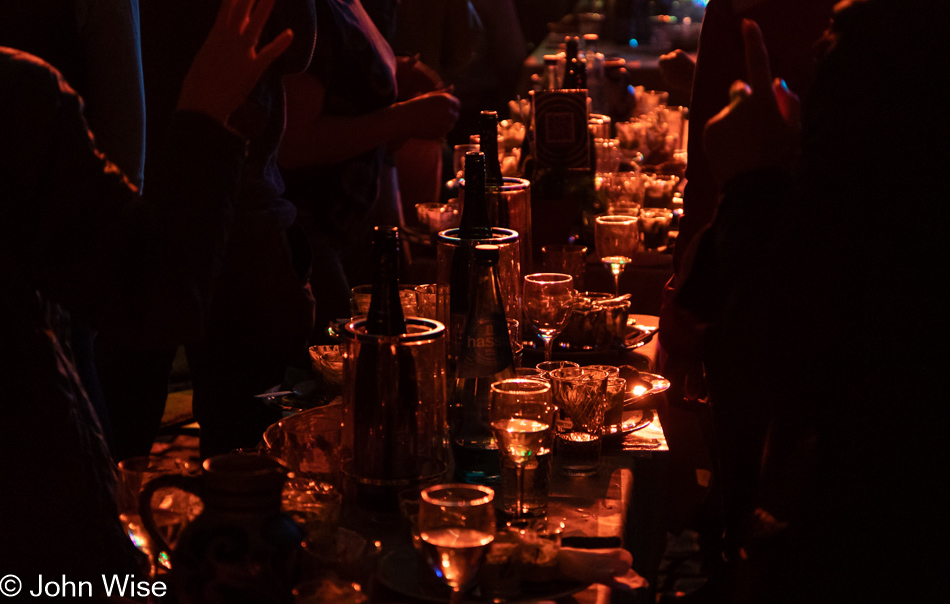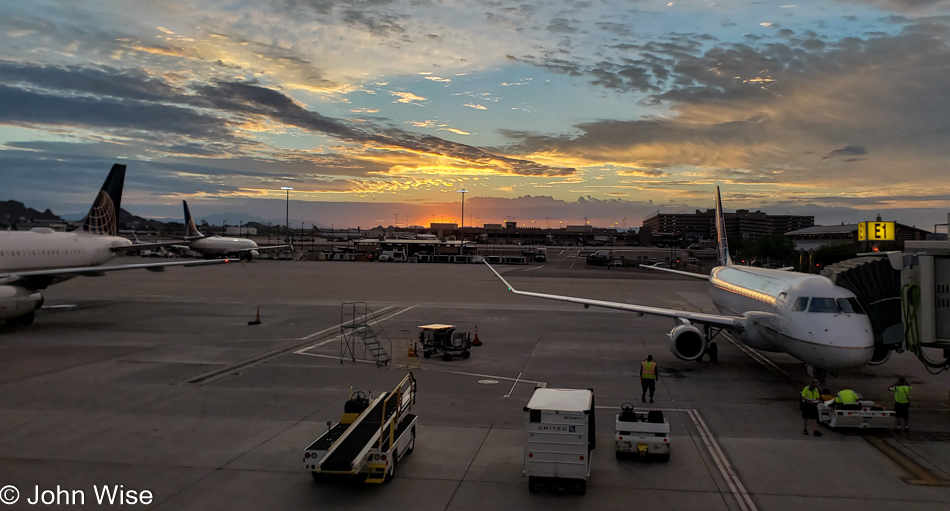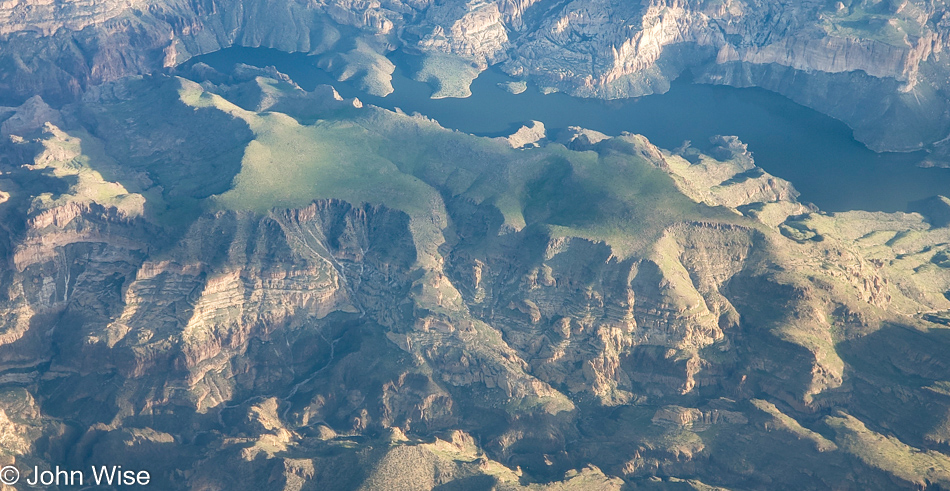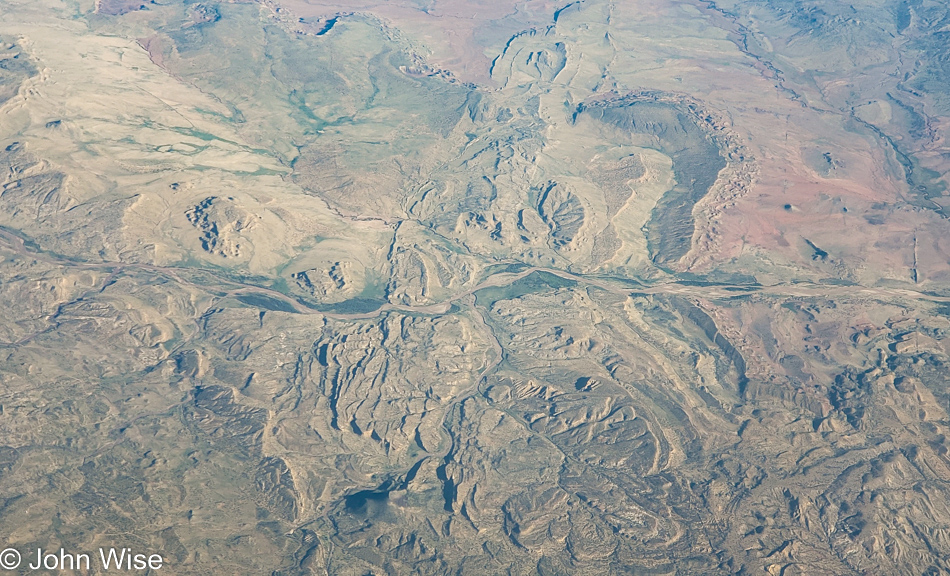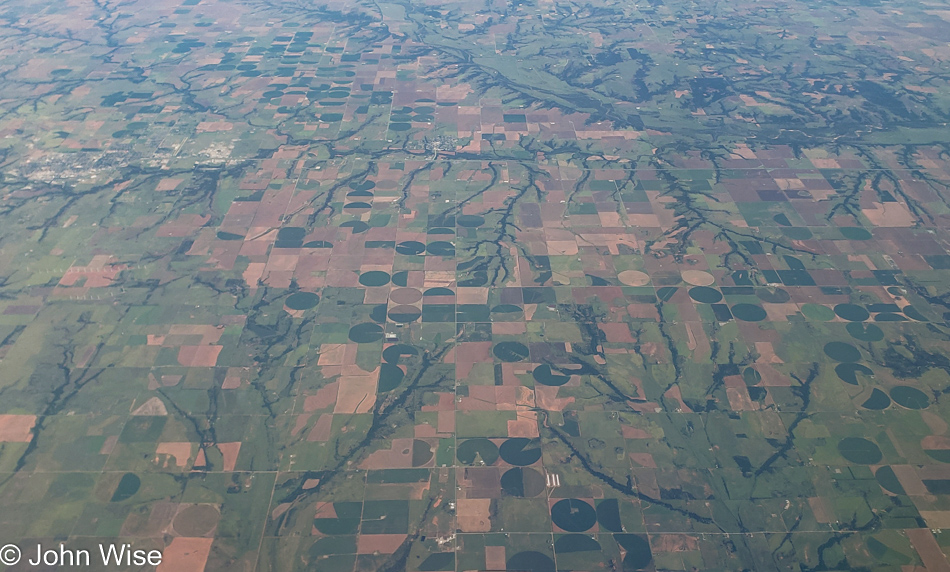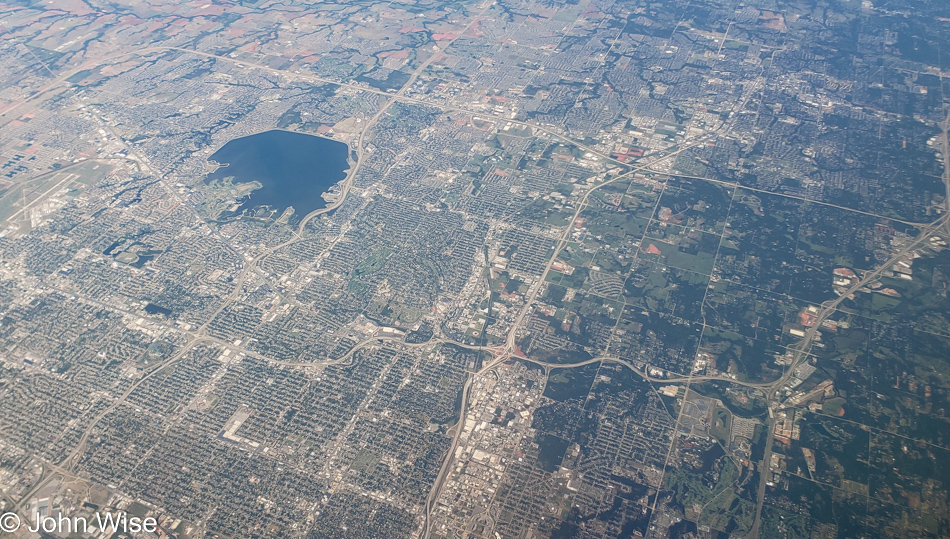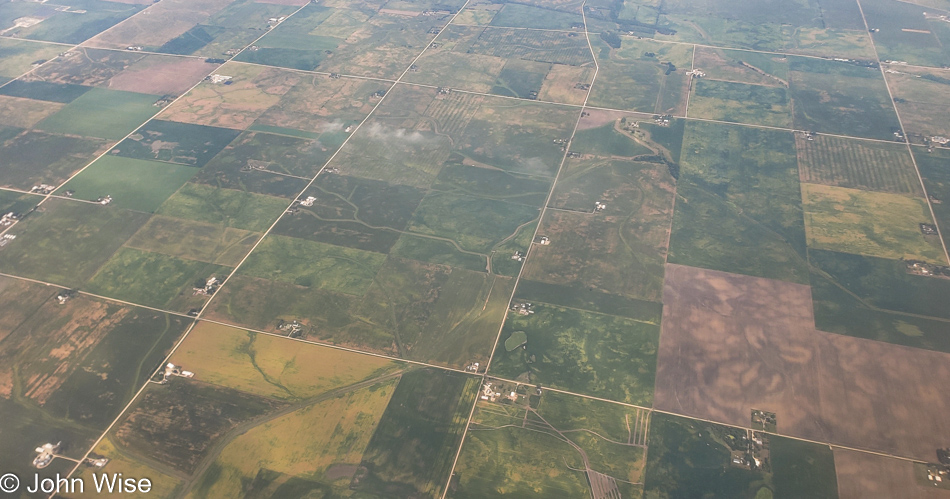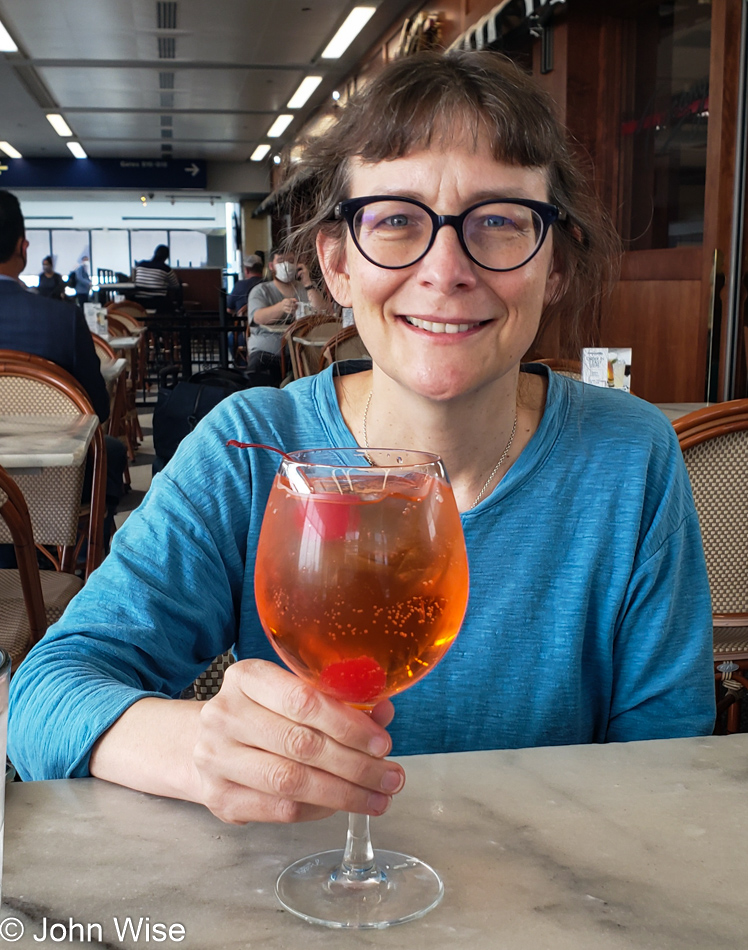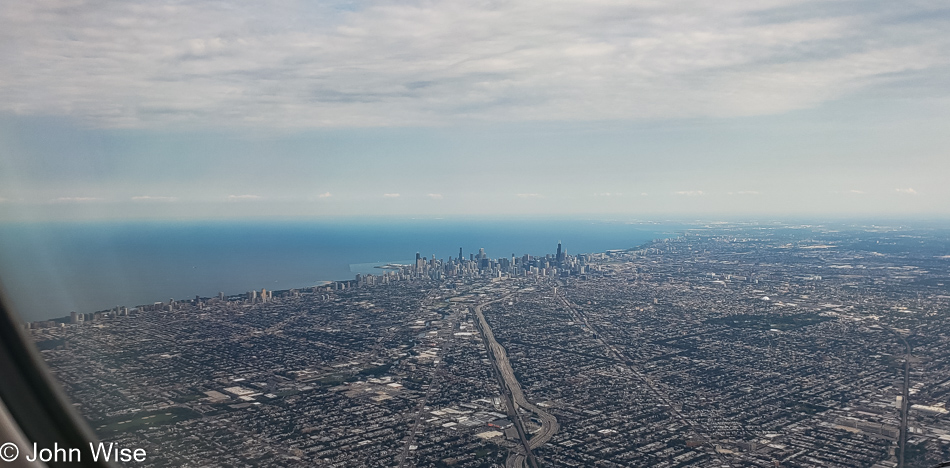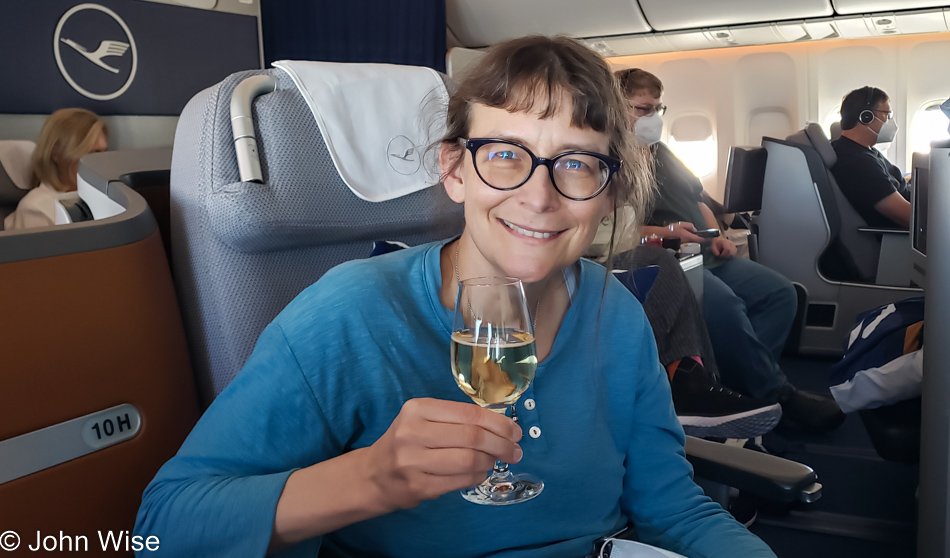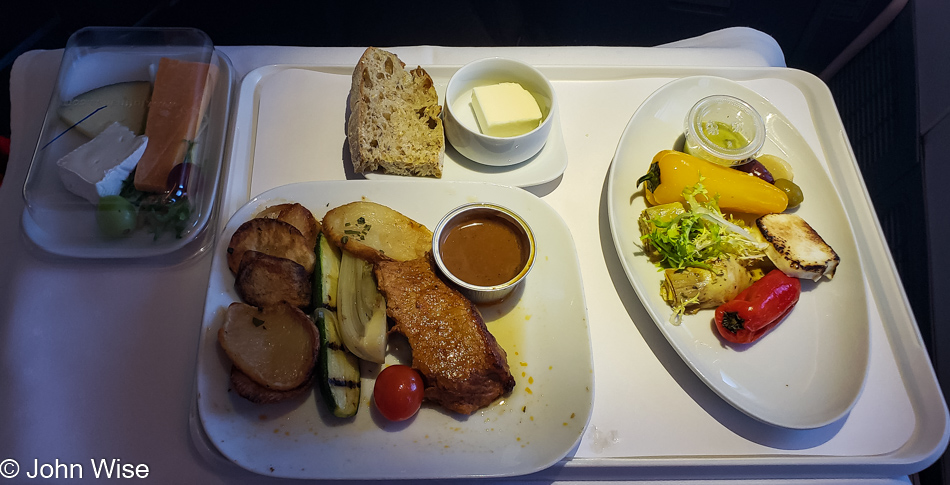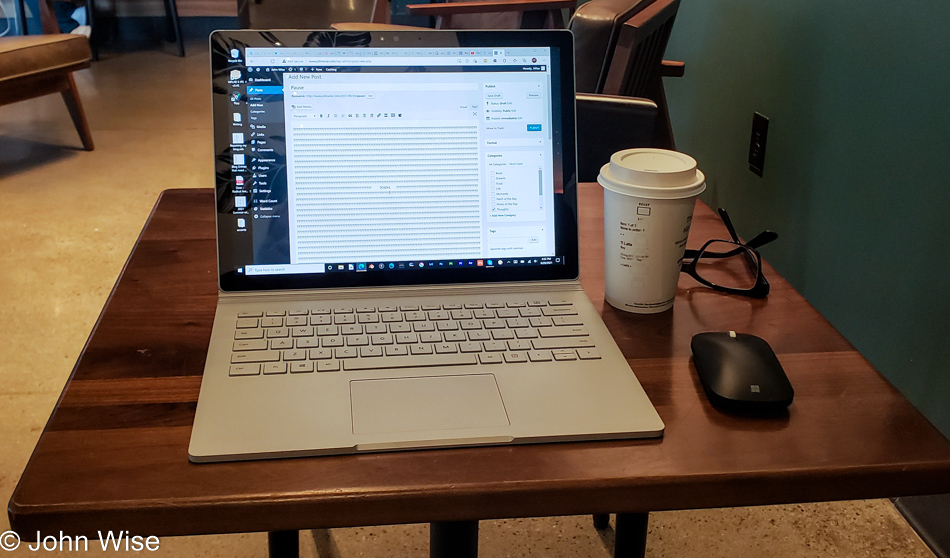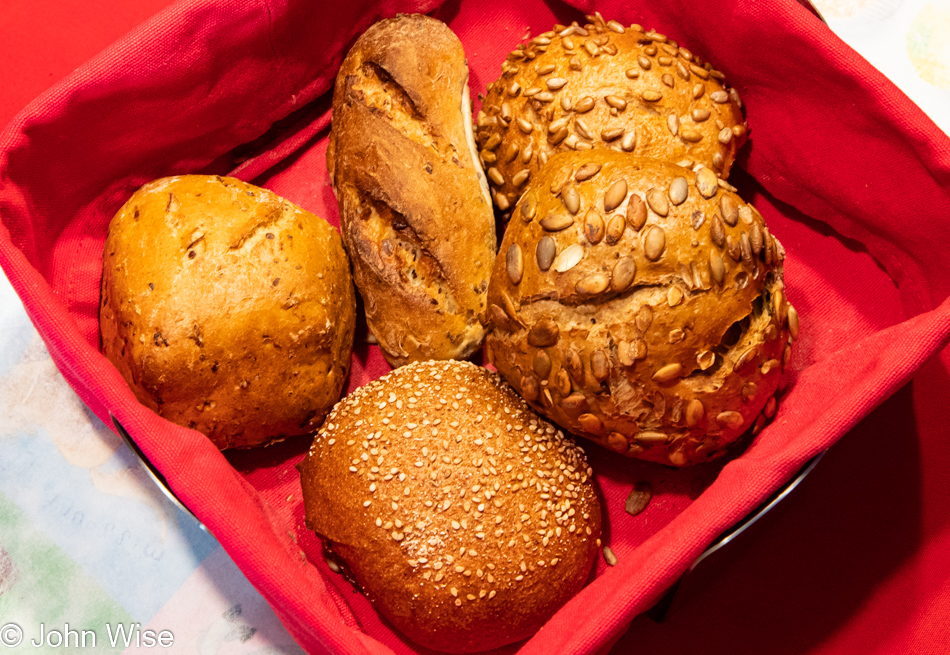
The mighty Brötchen (literally: small bread) is a fixture in how our days start in Germany. This breakfast staple has evolved since I first encountered it back in 1985. Back then, you could buy it in two versions, round white and triangular white. Since that time, the bakeries have pushed into exotic territories using all types of flour, seeds, whole grains, and various ingredients: the Brötchen on the left has small pieces of carrot in it.
Way back when, breakfast might include a plain Brötchen or two, some cheese, salami or ham, a soft-boiled egg, and a couple of tomato slices, but here at Haus Engelhardt, we dive into half a dozen varieties of fruit jams (many homemade), a slab of butter, and hot coffee to start the day. Maybe the greatest luxury is that the bakery makes deliveries, so usually, before we wake, an orange bag left on the front door magically is refilled with fresh Brötchen.
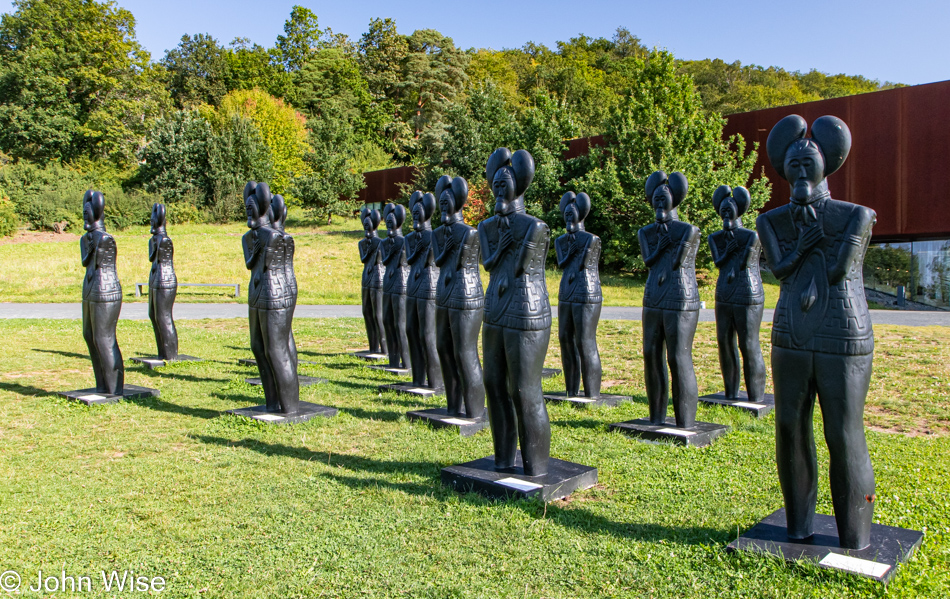
After breakfast, we didn’t have long to wait around as at 9:30, we were picked up by Caroline’s godmother, Helga. Our destination today is Keltenwelt am Glauberg, which translates to Celtic World on Glauberg. During the ten years I lived in Europe, from 1985 to 1995, I don’t believe I visited even one Celtic site, and here I am, visiting my third site this year; the two previous ones were in Heidelberg and Taunus back in June.
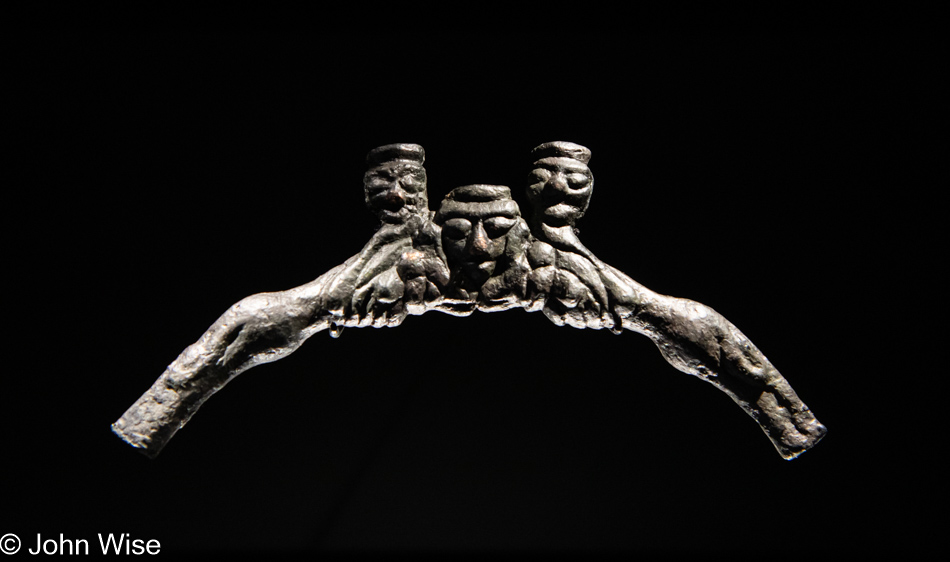
What was buried here on Glauberg (Berg means mountain as opposed to Burg, which means castle – this is our German lesson of the day) was an Oppidum. What is an Oppidum, you might ask? I had to ask; they were Iron Age Celtic settlements. This Oppidum was occupied approximately 2,500 years ago.

The Keltenwelt Museum up on this mountain is home to artifacts found in burial mounds. A tumulus (for a single one or tumuli for plural) is a burial mound, and the ones found here in 1988 were nearly invisible due to erosion and farming over the millennia. Amateur historians flying over the site discovered them, and excavations began in the early 1990s. This jug was one of the items.
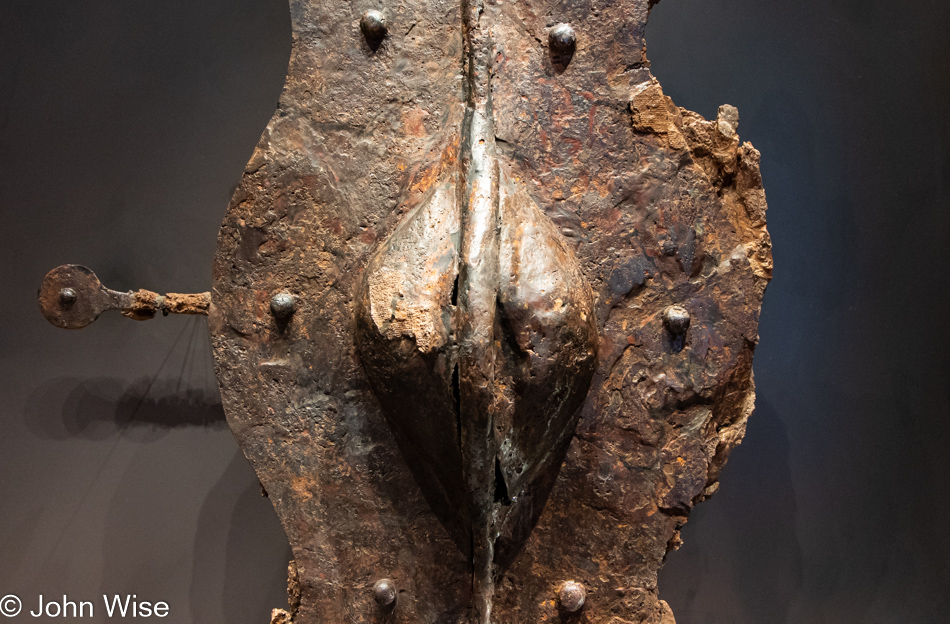
In one of the mounds, an unlooted grave was found and removed as a solid block along with the soil to be examined in a lab. This is the remnant of a shield, and as you’ll see in a photo below, a similar shield was featured on a statue also found on the site.

This torc was also found in the burial site; look at the neck of the statue below to see the three main elements that are similar between this neck jewelry and that on the statue.
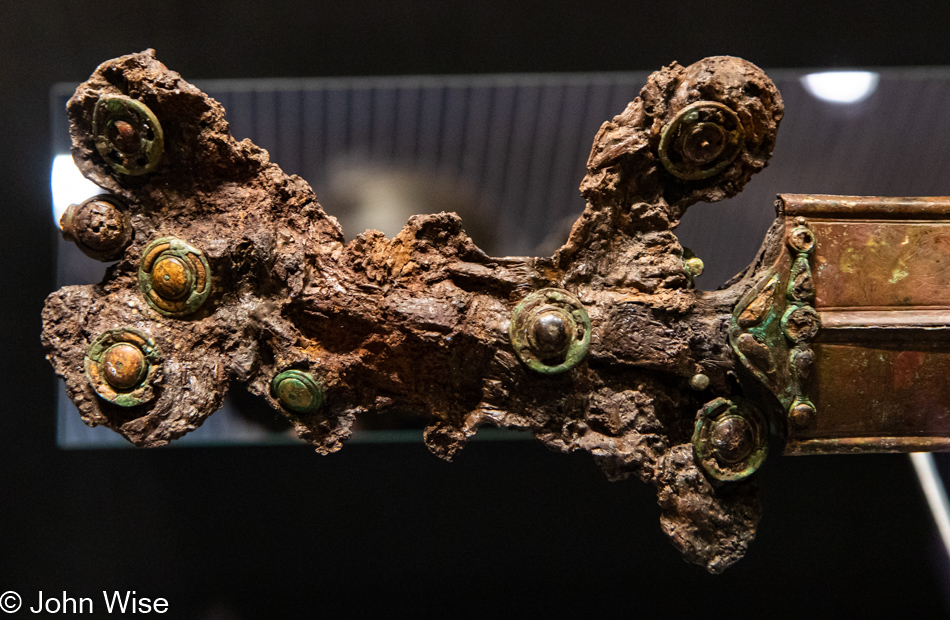
Interestingly, in person, you cannot really make out the colors of the stonework in the sword’s handle, and then again, you can’t zoom in with your eyeballs to see this level of detail. Speaking of what can and can’t be seen and done while at this museum, none of the descriptions posted with the exhibit pieces are in any other language besides German.

This is the real treasure found in one of the burial mounds (tumuli): the Celtic Prince of The Glauberg. While fragments of other statues were found, this is the most complete, with only his feet missing.
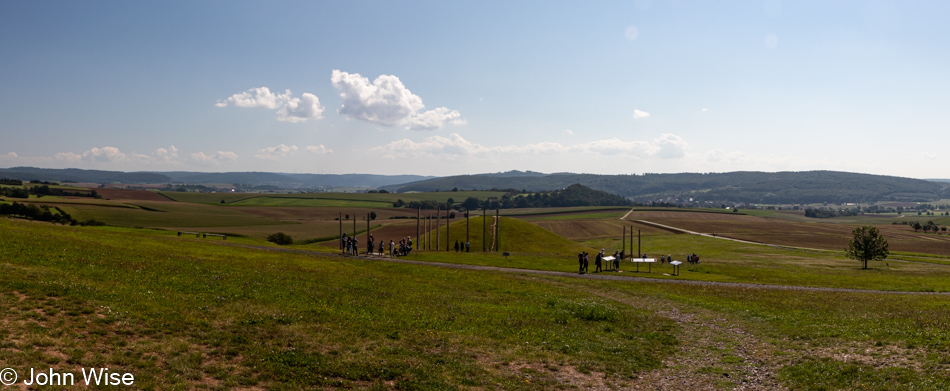
While difficult to make out in this photo, a tumulus (burial mound) can be seen in the center of the photo. The settlement of the Celts would have been on the Glauberg hilltop right behind me, near where the museum currently sits.
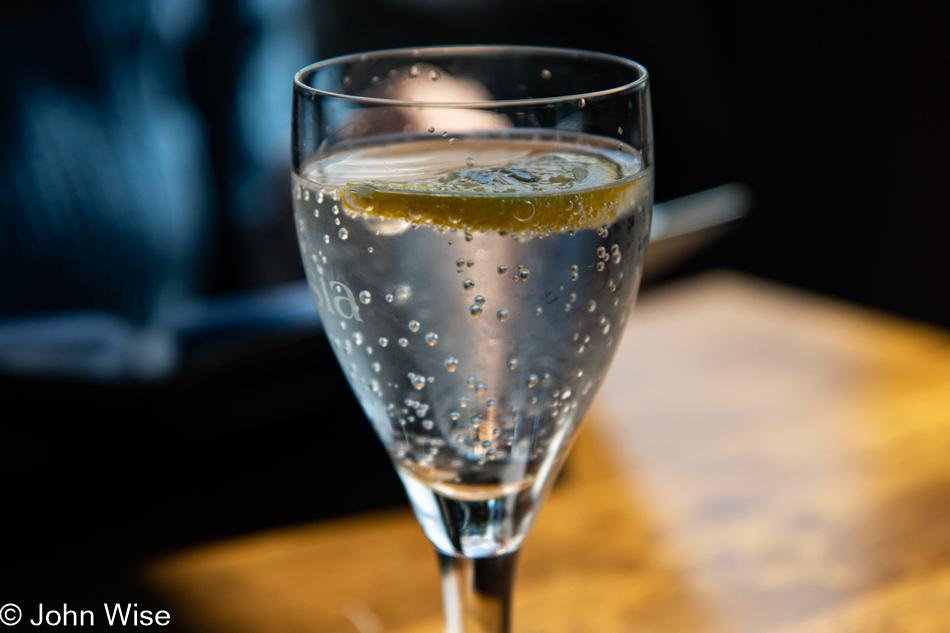
Time for a lunch break at a small tapas place next to the road in Altenstadt. But John, this is only a glass of water? Well, yes, but it is also a small reminder of how common mineral water is in Germany and how if the server senses you are a foreigner, they’ll ask if you want “still” or “mit Sprudel?”
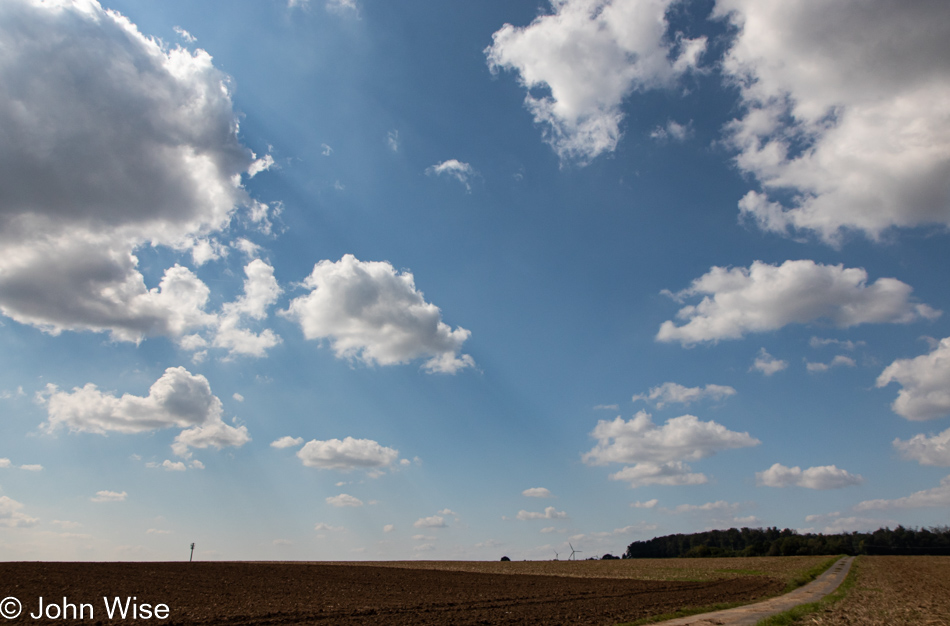
Off on the next leg of today’s adventure of hanging out with Helga.
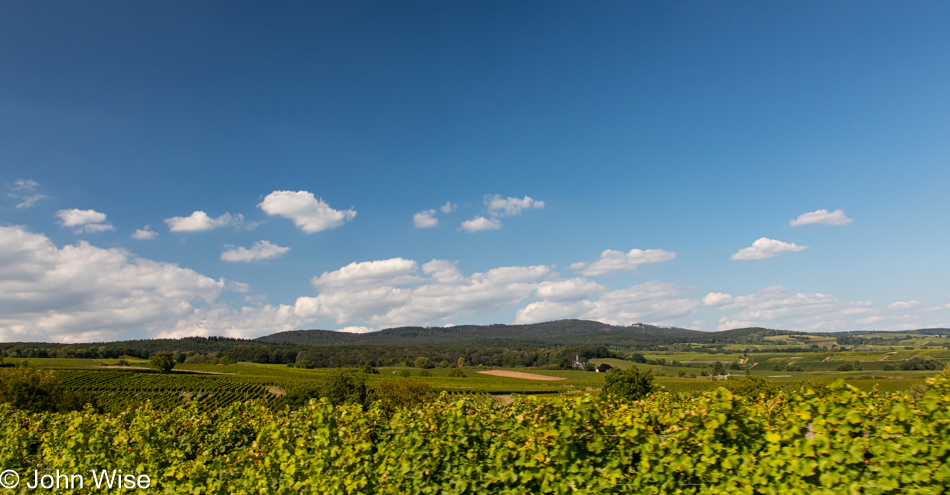
We are heading into one of the famous wine regions along the Rhein River called the Rheingau.
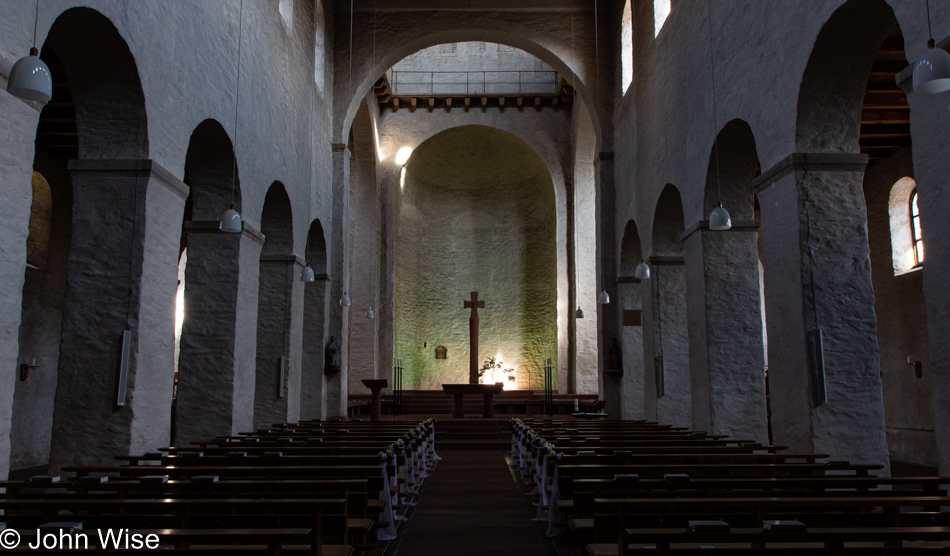
We’ve arrived at Schloss Johannisberg in Geisenheim and are visiting the Catholic church as our first stop because Caroline and I are on a church deficit.

Schloss Johannisberg or Johannisberg Castle is the “First Riesling Wine Estate of the World” and is where the concept of the Late Harvest Dessert Wine was discovered when, because of a delay in communication, the wine harvest only commenced after the grapes had started to rot on the vines. A fungus from that rot called “Noble Rot” became essential for sweetening subsequent harvests.
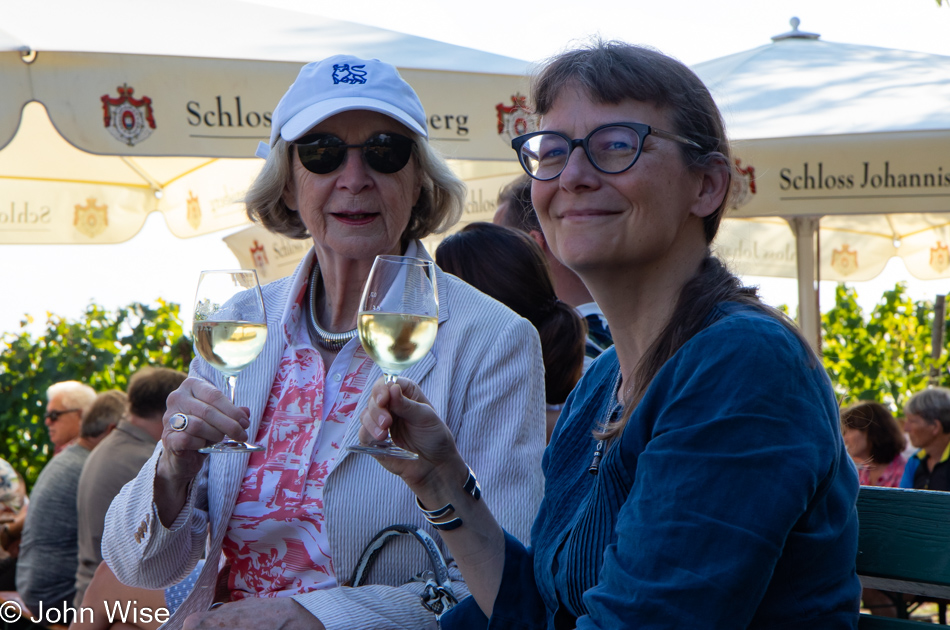
Helga and Caroline enjoying a glass of wine with Noble Rot.
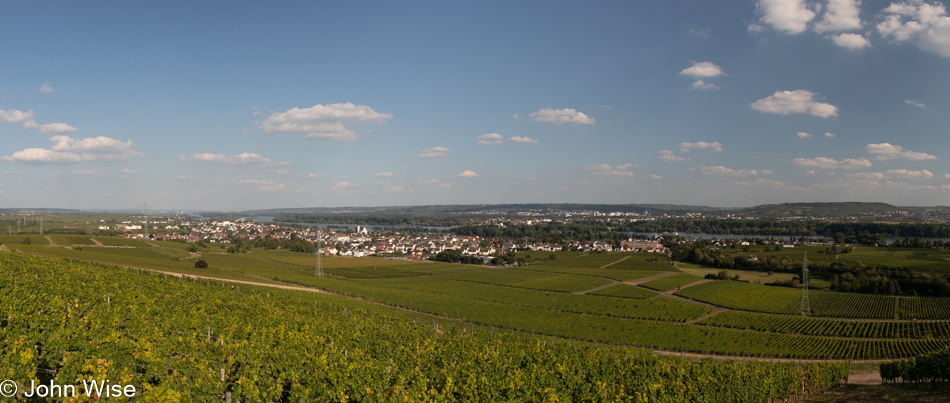
The view east from Schloss Johannisberg with the Rhein River out there somewhere.

I thought we were leaving…
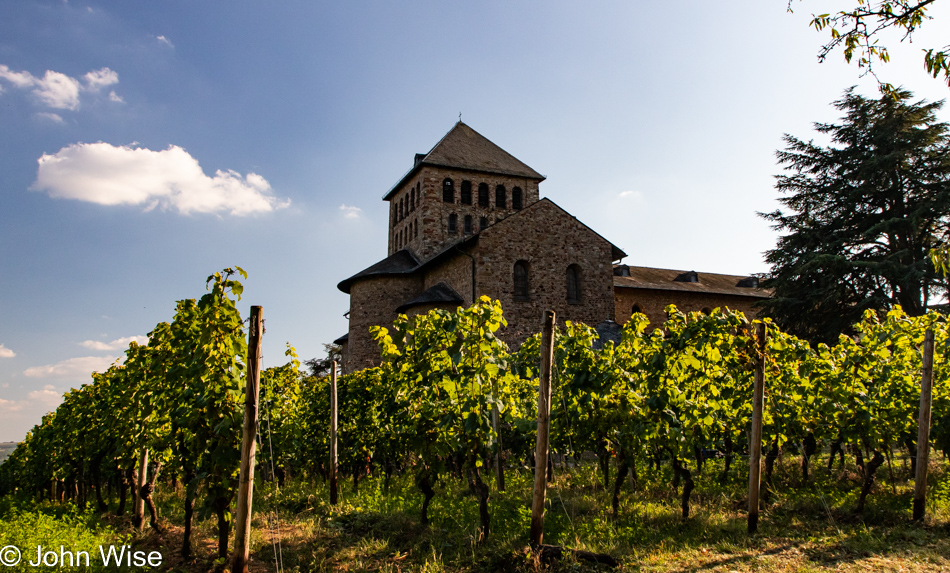
….as it was getting later in the day…
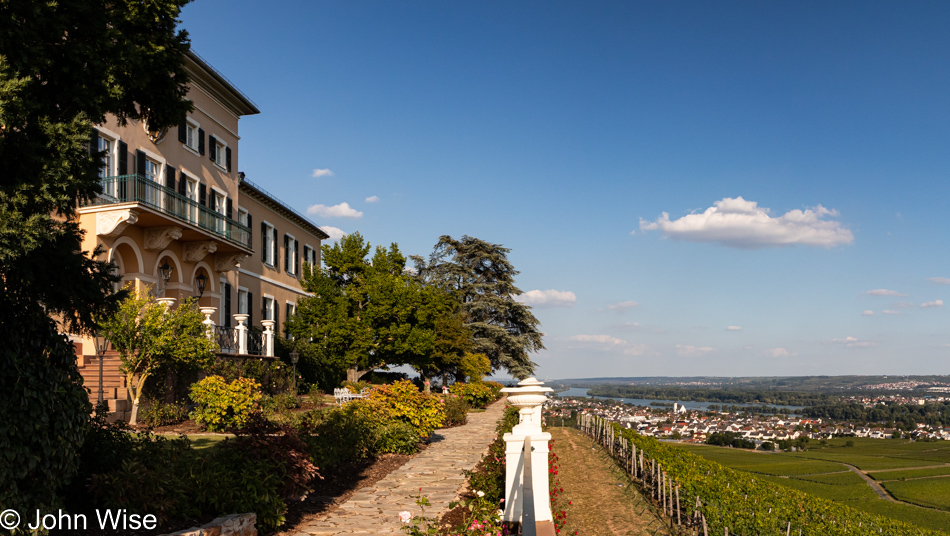
…but first, a view from this side of the caste.
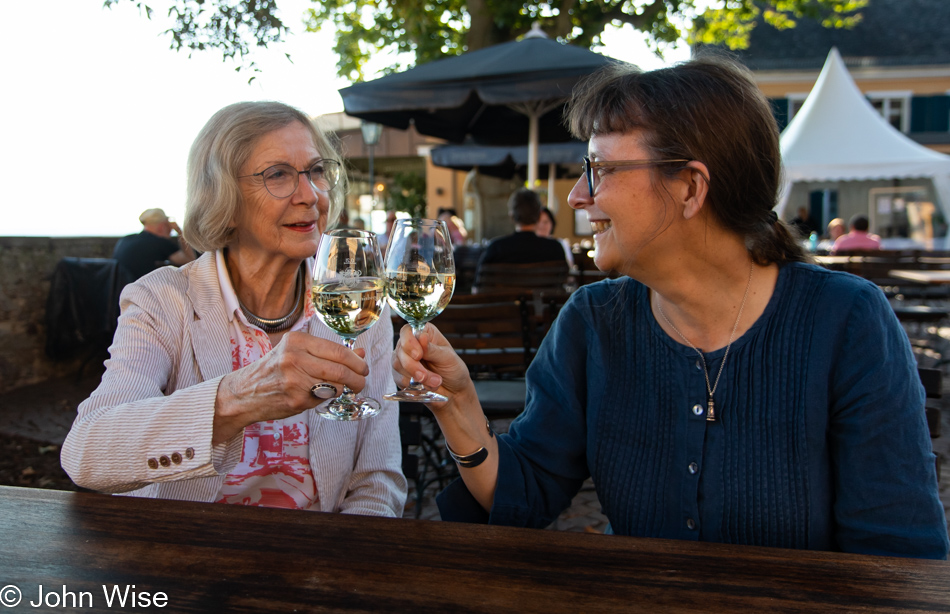
Oh, time for another glass of wine. As our final toast of the day was had, we were shortly about to collect three onions and bacon Flammkuchen, which is more like a lavash though the translation is “pancake.”
It was a beautiful day visiting a Celtic site and sitting atop of hillside overlooking the Rhein with Caroline’s godmother, Helga. It felt extraordinary as I’ve only ever known Helga to be one of the busiest people I’ve met, she always seems to be on the go. As a matter of fact, we only had a brief window when she’d be in town without something already scheduled; tomorrow, she leaves for a few days in Stuttgart. Thanks, Helga, for such a wonderful tour of places we’d never been before.
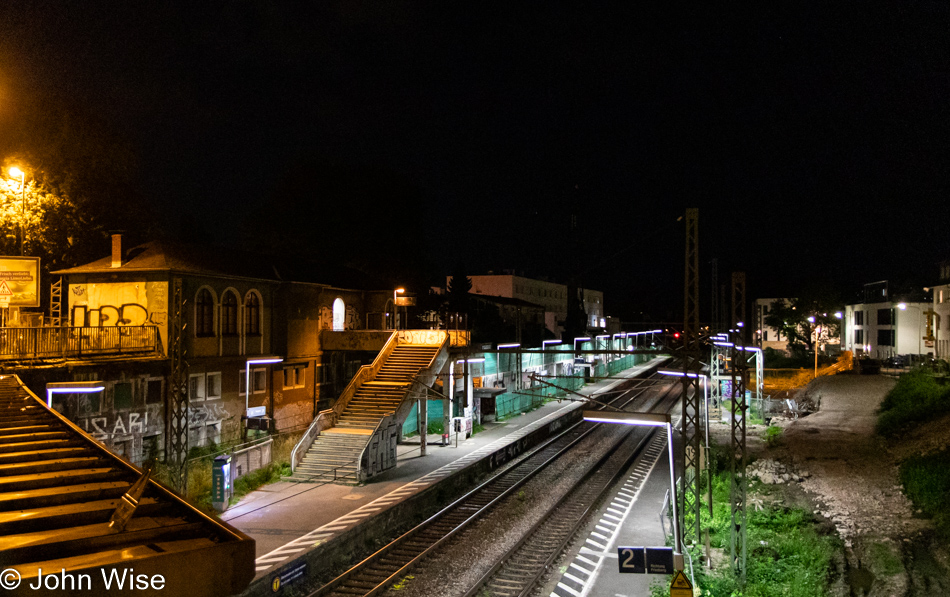
Without enough steps for the day, Caroline and I needed to head out for some walking. We took the train down to Dornbusch for a visit to a Döner shop, as I was still hungry, and then we walked back to Heddernheim. This train stop is not where we traveled from but is an S-Bahn station we pass on our way but it does hold a special place in our hearts. There used to be a small footbridge over this track a little further into the distance, leading to the Batschkapp nightclub I’ve written about before. This was where Caroline and I sat to talk for a while prior to my giving her a ride to her apartment. Hours after that, we fell in love, and the rest is history.


